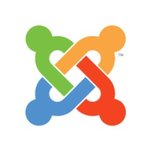Yes, a decent blogging platform may be accessible from various devices and platforms. Most blogging systems offer responsive designs that enable for simple viewing and navigation on a variety of devices, including PCs, laptops, and mobile phones. Furthermore, many major blogging platforms have mobile apps for both iOS and Android, making it easy to maintain and update your blog on the move. As long as you have internet connectivity, you may access and edit your blogging platform from any location.
List of 20 Best Blogging Platform
WP Travel is a premium plugin designed specifically for tour operators and travel agencies using WordPress. It simplifies the process of creating and managing your own travel website, empowering you to promote your packages and services effectively a...Read More WP Travel
Wordable solution for seamlessly transferring your content from Google Docs to Wordpress. With just one click, you can create and edit your blog posts in Google Docs and conveniently import them into your Wordpress account. Enhance your blogging expe...Read More Wordable
software, Live Blog. Designed for news organizations, it provides hassle-free live updates with seamless multimedia integration and powerful SEO features. Gain an edge in audience engagement and expand your reach effortlessly. Join the elite ranks of...Read More Live Blog
Postach.io revolutionizes the world of blogging with its unique features. Tailored to meet your individual needs, this software offers a seamless experience. Its integration with Evernote allows you to effortlessly transform your notes into powerful...Read More Postach.io
Storify the software that takes storytelling to new heights by seamlessly integrating multimedia elements. Craft powerful narratives that effortlessly blend text, images, and videos to captivate your audience. Ideal for marketers and educators, Stori...Read More Storify
Diigo is a online tool for saving, tagging, and annotating web pages, PDFs, and other online content from any device and location. With its advanced features, you can easily bookmark, organize, and share your research with others, create personalized...Read More Diigo
OmmWriter is a trusted and well-regarded blog software that provides a distraction-free writing experience. It promotes a seamless flow between thoughts and words, with a focus on customer satisfaction. By eliminating distractions, OmmWriter boosts p...Read More OmmWriter
Dotclear is a blogging software that offers seamless management of blogs for users. Stay up-to-date with enhanced security and bug fixes with our recent updates, ensuring a hassle-free blogging experience. Our versatile platform ensures easy blogging...Read More Dotclear
Photler is solution for displaying your breathtaking travel photography in a compelling way. This exceptional software provides easy-to-use templates for creating a stunning portfolio and blogging about your adventures. Plus, you can conveniently sel...Read More Photler
Joomla! is a highly versatile content management system that has been empowering users to easily build dynamic websites and applications since 2005. Its vast repository of extensions and templates offer unparalleled possibilities for customization. D...Read More Joomla!
b2evolution is a software designed to help you create and manage professional blog, photo gallery, and newsletter websites effortlessly. It comes with advanced features such as forums, member directory, and private messaging, making it a perfect solu...Read More b2evolution
Weebly is a leading web design platform that enables users to easily build and customize websites, blogs, and online stores. With a broad customer base, this powerful software has served as a launchpad for countless individuals and businesses to esta...Read More Weebly
Doriksolution for building and managing your own customized website. Our White-label website builder boasts a user-friendly interface, making website creation effortless and hassle-free. Whether youre a beginner or an expert, Dorik provides a straigh...Read More Dorik
Tumblr is a platform that revolutionizes social media, merging blogging and social networking effortlessly. Its innovative features allow for seamless sharing of diverse content, fostering inspiration and redefining how online communities connect and...Read More Tumblr
Contently is a content marketing platform designed to elevate your brands content strategy. With access to a network of 165,000 skilled creatives, Contently helps businesses produce, expand, and optimize their content for maximum impact and return on...Read More Contently
MarsEdit is a blog publishing tool designed to streamline content creation and management for both desktop and mobile blogs. Featuring a user-friendly text editor, convenient file uploading, and seamless media integration, this software caters to per...Read More MarsEdit
BlogJet, a top-performing blog editor that has revolutionized numerous industries. Its robust features, such as post management, word count tracking, blog autodiscovery, and auto-replace, have significantly improved workflow and productivity. Bid far...Read More BlogJet
LabiBlog - the premier blogging software for businesses looking to boost their online presence and attract new customers through engaging content. With our user-friendly app, companies can effortlessly create a professional blog, access writing tools...Read More LabiBlog
Simbla is a highly acclaimed software that offers a range of innovative tools, including a website builder, online database, and application builder. It has been praised by multinational companies for its exceptional performance. With Simbla, users c...Read More Simbla
Learn More About Blogging Platform
- What Is Blogging Platform?
- What Are The Recent Trends In Blogging Platform?
- Benefits Of Using Blogging Platform
- Important Factors To Consider While Purchasing Blogging Platform?
- What Are The Key Features To Look For In Blogging Platform?
- Why Do Businesses Need Blogging Platform?
- How Much Time Is Required To Implement Blogging Platform?
- What Is The Level Of Customization Available In Blogging Platform?
- Which Industries Can Benefit The Most From Blogging Platform?
- Conclusion
What Is Blogging Platform?
A blogging platform is a software or service that enables users to build, publish, and manage their own blog or website. It includes all of the tools and functionality that bloggers need to simply create, tweak, and share their material with the world. There are a variety of blogging platforms accessible, ranging from free to paid, each with its own set of features and strengths.
However, the core goal of all blogging platforms is the same: to provide a user-friendly interface for bloggers to generate and distribute content without requiring technical skills or experience. One of the primary advantages of adopting a blogging platform is that it eliminates the need for coding or web development, making it more accessible to people with less technical understanding.
Furthermore, most blogging platforms provide templates, plugins, and themes to let you personalize the look and functionality of your blog. When choosing a blogging platform, it is critical to consider the features available, such as configurable designs, user-friendly interfaces, SEO optimization, analytics, and integrations with social media sites.
It is also critical to verify that the platform is secure and provides adequate customer support. Choosing the correct blogging platform is critical to a blog's success, since it affects its reach, functionality, and growth. As a result, it is critical to explore and compare many possibilities to choose which one best meets your needs and goals as a blogger. A blogging platform allows people to quickly communicate their thoughts, ideas, and expertise with the rest of the world, making it a great tool for personal or business use.
What Are The Recent Trends In Blogging Platform?
In recent years, blogging has become an extremely popular form of online expression and communication. With the rise of social media and the growing relevance of digital marketing, the demand for effective blogging platforms has skyrocketed. As a result, there has been a considerable movement in the blogging platform environment, with new trends arising to meet bloggers' constantly shifting needs.
we'll go over the latest trends in blogging platforms that every potential buyer should be aware of.
1. Mobile-Friendly Design: One of the most significant trends in blogging platforms is the growing need for mobile-friendly designs. With the majority of internet users accessing blogs and webpages via smartphones, it is critical for blogging platforms to have adaptable designs that can adjust to different screen sizes. This trend has resulted in the creation of new platforms with mobile-first designs and features that improve the user experience on mobile devices.
2. User-Friendly Interface: Another trend that has evolved in recent years is an emphasis on user-friendly interfaces. As blogging systems become increasingly accessible to non-technical users, they must have clear and straightforward interfaces. This tendency has resulted in the creation of platforms that include drag-and-drop functionality, adjustable templates, and simple tools for creating and managing content.
3. Integration Of Social Media: With the increasing relevance of social media in digital marketing, blogging platforms have begun to incorporate social media elements into their offerings. This trend has made it easier for bloggers to publish their content across several social media platforms and interact with their followers. Additionally, some platforms provide social sharing buttons and social media statistics to assist writers track the performance of their material across various social media networks.
4. Concentrate On SEO: Search Engine Optimization (SEO) has become an important component of blogging, and blogging platforms are now focusing more on this area. Many platforms have built-in SEO tools and plugins that assist bloggers optimize their content for search engines. This trend has made it easier for bloggers to boost their website's rating in search engine results pages and get online visibility.
5. Focus On Visual Content: Visual content has become a big trend in blogging, with bloggers include more images, videos, and infographics in their postings. As a result, blogging systems have begun to focus on offering features and tools for creating visually appealing material. This trend has resulted in the creation of platforms with built-in picture and video editors, stock image libraries, and responsive image optimization to improve loading times.
Benefits Of Using Blogging Platform
Blogging platforms have been popular among individuals and businesses seeking to establish an online presence. These platforms provide a variety of features and benefits, making them an invaluable resource for bloggers at all levels. In this buyer's guide, we'll go over the main benefits of adopting a blogging platform and help you make an informed decision about your blogging needs.
First and foremost, blogging systems offer a user-friendly interface that allows newcomers to easily start and manage a blog. These platforms provide simple editors, adjustable themes, and drag-and-drop functionality that eliminates the need for coding or technical knowledge. Individuals with no prior experience can easily begin blogging.
Furthermore, most blogging systems provide a wide range of design options, allowing bloggers to select from a variety of layouts, fonts, and color schemes to complement their business or personal style. This not only improves the blog's visual appeal, but also helps to develop a distinct online personality. Another significant advantage of blogging systems is their integrated SEO tools.
These tools assist bloggers in optimizing their content for search engines, which allows their blog to rank higher in search results. This, in turn, can boost the blog's traffic and visibility. Furthermore, blogging systems include a variety of integrations and plugins, allowing bloggers to add other functionality to their blogs. This contains social network sharing buttons, email opt-ins, and contact forms, among other things.
These features can help bloggers connect with their readers and expand their following. Furthermore, most blogging systems feature a responsive design, which means the blog will adapt to multiple screen widths, making it mobile-friendly. With the growing popularity of mobile devices, this functionality is critical for guaranteeing that the blog can be viewed and read from any device. Another big advantage of blogging platforms is the ability to monetise your site.
Most platforms provide options to earn money, such as displaying advertisements, affiliate marketing, and selling products or services. This makes blogging a viable source of revenue for people wishing to turn their passion into a profitable business. Finally, blogging platforms provide extensive analytics and tracking tools, allowing bloggers to get insight into the performance of their blogs. This information can help writers better understand their readership, find popular material, and make data-driven decisions to improve their blog.
Important Factors To Consider While Purchasing Blogging Platform?
When considering purchasing a blogging platform, a few crucial things must be considered to guarantee that you select the best one for your individual requirements.
Here are the key considerations to consider before making your decision.
1. Usability: As a blogger, you want to focus on writing amazing content rather than struggling with a complex platform. Look for a user-friendly layout with easy navigation and configurable features.
2. Features And Customization Choices: Different blogging systems provide varying levels of features and customization possibilities. Consider which features are critical for your blog and select a platform that includes them, such as built-in SEO, social network integration, and customizable themes.
3. Cost: Some blogging systems are free, while others cost a monthly or one-time fee. Before making a purchase, establish your budget and compare it against the platform's features and capabilities.
4. Hosting: Some platforms provide hosting, but others need you to hire a third-party hosting provider. The platform's hosting services may be more convenient, but before making a selection, ensure that their hosting is secure and reliable.
5. Scalability: If you're serious about growing your blog, ensure sure the platform can scale with your business. Look for platforms with easy expansion options or a variety of packages to meet diverse demands.
6. Help: If you encounter any technical issues or have questions regarding the platform, you must have solid help from the supplier. Look for systems that provide a variety of support options, including live chat, email, and phone assistance.
7. Mobile Responsiveness: With an increasing number of people consuming material on mobile devices, having a mobile-responsive blog is critical. Make certain that the platform you select is optimized for mobile viewing.
8. Security: With online threats on the rise, security is an important element to consider. Choose a platform that provides secure hosting, regular backups, and strong security features to safeguard your blog. By keeping these crucial considerations in mind, you can make an informed selection and select the finest blogging platform for your requirements. Consider your budget, future growth, and important features to ensure your site thrives and stands out in the broad world of blogging.
What Are The Key Features To Look For In Blogging Platform?
When looking for the best blogging platform, there are a few crucial elements to consider that can have a significant impact on your blogging experience. These features influence not just the style and operation of your blog, but also how effortlessly you can manage and communicate with your readers. As a professional content writer, I've developed a list of crucial elements to consider while making a decision.
1. User-Friendly Interface: One of the most significant features of a blogging platform is its user interface. It should be simple to use, with a clear and structured interface that lets you to generate and post material quickly. A cluttered and unclear interface can soon make blogging frustrating.
2. Modification Options: Because each blogger has an own design and identity, it's critical to select a platform that allows for a wide range of modification. Look for a platform that allows you to customize the design of your blog, such as altering colors, fonts, and layout, to make it truly stand out.
3. Responsive Design: In today's digital world, your blog must have a responsive design that is suitable for both desktop and mobile devices. A responsive design guarantees that your blog appears amazing on any screen size, allowing you to reach a larger audience while keeping them interested with your content.
4. SEO Features: SEO (search engine optimization) is critical to a blog's visibility and success. To help your blog rank higher in search engine results, choose a platform that includes built-in SEO tools like the ability to add meta tags, tweak URLs, and optimize photos.
5. Multimedia Support: Including multimedia content, such as photographs, videos, and music, can significantly increase your blog's engagement. Make sure the platform you chose supports a wide range of media types and provides options for embedding and optimizing them in your blog entries.
6. Third-Party connectors: To enhance the functionality of your blog, you should evaluate the availability of third-party connectors with your preferred platform. This may include plugins, widgets, or integrations with social media sites, e-commerce systems, and email marketing providers.
7. Support And Resources: If you're new to blogging, you may need help setting up and managing your blog. Look for a platform that provides comprehensive assistance and resources, such as tutorials, FAQs, and a dedicated customer service team, to assist you with getting started and troubleshooting any issues. Remember that a blogging platform's primary features can have a significant impact on the success of your site and your overall blogging experience.
Why Do Businesses Need Blogging Platform?
Blogging has become an important part of web marketing for organizations of all sizes. It enables them to interact with their target audience in a more personal way, create credibility, and promote their products or services. However, blogging may be time-consuming and hard, which is why a blogging platform is necessary. A blogging platform is a software or technology that assists organizations in creating, managing, and publishing blog content. It has several capabilities, including customizable themes, content management systems, analytics, and integrations with social networking and email marketing platforms. So, why should businesses use a blogging platform?
Here are some reasons:
1. Simple And Efficient Content Management: Blogging systems provide a user-friendly interface that makes it easier to create and manage material. It enables businesses to simply produce and publish blog entries, upload images and videos, and organize their information in a structured manner. This saves time and effort, allowing organizations to focus on more vital responsibilities.
2. Improved Website Visibility: Including a blog on your company's website will greatly boost your search engine results. Blogging platforms include SEO elements such as meta descriptions, tags, and keywords to help you optimize your material for search engines. This improves your website's exposure and generates more organic traffic, which leads to new consumers.
3. Brand Building And Credibility: Publishing quality content on a blog on a regular basis allows firms to define their brand voice and demonstrate their expertise. A blogging platform allows you to customize the blog's style and layout, making it visually appealing and reflective of your brand's identity. Consistent and valuable blog articles foster confidence and credibility in the audience, increasing the likelihood of engagement and conversion into customers.
4. Lead Generation: Blogging systems have tools for converting website visitors into leads, such as call-to-action buttons and email opt-ins. Businesses that provide great content can attract potential consumers and nurture them along the sales funnel, leading to conversions.
5. Integration With Marketing Tools: Many blogging platforms provide integrations with popular marketing tools like social networking and email marketing, making it easier for businesses to distribute their blog material and reach a larger audience. This also enables the tracking and analysis of blog post success, allowing firms to make more educated marketing decisions.
How Much Time Is Required To Implement Blogging Platform?
The amount of time necessary to deploy a blogging platform is determined by a number of factors, including the user's technical skills, the complexity of the chosen platform, and the desired level of customization. Setting up and launching a basic blog on a platform like WordPress or Blogger can take anywhere from a few hours to a few weeks.
Popular blogging platforms such as Squarespace and Wix include user-friendly layouts and drag-and-drop editors, making setup much easier. These platforms also offer hosting and domain registration, saving users the trouble of researching and setting up these services individually. More complex platforms, such as Drupal or Ghost, may require more effort to implement.
These platforms provide greater flexibility and customization choices, allowing users to have more control over the style and functioning of their blogs. However, this implies a steeper learning curve and possibly more time spent troubleshooting and fine-tuning the blog. It's crucial to remember that starting a blog is only the first step. Regular maintenance, content production, and promotion are essential for a successful blog, and these chores will need a consistent time commitment.
As a result, it's critical to select a blogging platform that matches your skill level, desired amount of customisation, and long-term objectives to ensure a seamless deployment and efficient use of time.
What Is The Level Of Customization Available In Blogging Platform?
When deciding on the finest blogging platform for your purposes, you should evaluate the level of customisation offered. From style and layout to features and functionalities, the ability to modify your blog can have a significant impact on its success. Let's look at the various levels of customisation accessible in the leading blogging platforms on the market. WordPress, the most popular blogging platform, provides the greatest level of customisation. Its open-source nature enables users to completely personalize their blog with an infinite number of themes, plugins, and code possibilities.
This degree of adaptability makes it excellent for bloggers who desire complete control over their website's look and functioning. Similarly, Joomla and Drupal, as open-source platforms, allow for extensive customization. They provide a variety of themes, modules, and extensions that allow users to tailor their blogs to their preferences.
However, these platforms have a steeper learning curve and are best suited to advanced users. Wix and Squarespace, both website builders, provide medium levels of customisation. While they provide an easy-to-use drag-and-drop interface, they also offer pre-made templates, themes, and layout modification possibilities.
However, unlike WordPress, customisation is confined to the platform's pre-designed parts. Blogger, Tumblr, and Medium are all beginner-friendly platforms with minimal customization. While they provide some basic design and layout options, there is little room for further customization. These platforms are better suited to bloggers that value simplicity over customisation.
Which Industries Can Benefit The Most From Blogging Platform?
Blogging platforms have grown in popularity and importance as a means for businesses and individuals to communicate their views, ideas, and skills with the rest of the world. However, with so many options available, it might be difficult to identify the best platform for your individual requirements. If you're thinking about investing in a blogging platform, you should first determine which sectors will profit the most.
1. E-commerce Industry: With the growing popularity of online purchasing, e-commerce enterprises can considerably profit from using a blogging platform. E-commerce enterprises can attract new customers and establish a loyal following by producing informed and entertaining content about their products or sector on a consistent basis. Furthermore, blogging can boost search engine results, bringing more traffic to the e-commerce website and, ultimately, increasing sales.
2. Creative Industry: Whether it's exhibiting their latest work, giving behind-the-scenes stories, or providing insights into their creative process, blogging platforms are an invaluable resource for individuals and organizations in the creative sector. It enables individuals to construct a personal brand, position themselves as specialists, and network with possible clients or partners.
3. Marketing And Advertising: Blogging platforms have the potential to transform the marketing and advertising industry. They may attract potential clients, establish themselves as industry leaders, and increase trust by developing and sharing valuable and actionable material on a regular basis. It can also be used as a forum to present successful case studies and solicit audience comments.
4. Education Industry: Blogging platforms can be extremely beneficial to educators and educational organizations. It allows kids and parents to share useful information, recommendations, and thoughts. It can also be used as a communication tool to keep students and parents informed about significant events or developments. Blogging can also serve to promote courses or programs and recruit new students.
5. Healthcare Industry: Blogging platforms can be an effective way for healthcare professionals and organizations to educate, increase awareness, and engage with their audience. It enables them to provide useful health and wellness information, promote their services, and create industry reputation and expertise. It can also be used as a forum for patients to express their experiences, testimonials, and queries.
Conclusion
Finally, selecting the appropriate blogging platform for your needs is critical to the success of your blog. With so many possibilities, it might be difficult to make a selection. However, by taking into account essential aspects such as your budget, technical ability, design preferences, and required features, you can narrow down your options and find the ideal fit. Platforms such as WordPress, Wix, and Blogger provide easy-to-use interfaces and low prices for new and casual bloggers.
On the other side, professional bloggers and businesses may benefit from the customization and advanced functionality provided by platforms such as Squarespace, Ghost, and Weebly. It's also important to consider your long-term ambitions and the platform's scalability. You do not want to outgrow your platform in a year and be forced to relocate your entire blog.
Finally, keep in mind that no blogging platform is ideal; each has advantages and disadvantages. It is critical to determine your priorities and select the platform that best corresponds with them. We hope you found this buyer's guide useful and will be able to make an informed decision when choosing a blogging platform. Happy blogging!
Blogging Platform FAQ's
Can Blogging Platform Be Accessed Across Multiple Devices And Platforms?
Is Blogging Platform Future-Proof And Adaptable to Emerging Technologies Like Ai, Blockchain or Iot?
Blogging platforms are continually evolving to keep up with emerging technology such as artificial intelligence, blockchain, and the Internet of Things. They are intended to be both future-proof and customizable, allowing bloggers to incorporate new features and tools as they become available. With the growing use of these technologies, blogging platforms are constantly adding them to give a more smooth and advanced blogging environment. So, sure, blogging platforms are well-equipped to absorb and leverage developing technologies, making them a long-term viable option for bloggers.
Is There A Free Trial Offered To Assess Blogging Platform Before Committing?
Yes, many blogging systems include a free trial to allow users to test its features before committing. This enables bloggers to evaluate the platform's user interface, customisation choices, and overall fit for their requirements. WordPress, Blogger, and Wix are some of the major blogging systems that provide a free trial. It is essential that you take advantage of free trials to ensure you select the best platform for your blogging career.
Does Blogging Platform Offer Data Security Features And Meet Regulatory Compliance Standards?
Yes, most blogging systems provide data security features like encryption, secure login, and regular backups to keep user data safe from cyber dangers. Many platforms also adhere to legislative standards such as the General Data Protection Regulation (GDPR) and the Children's Online Privacy Protection Act (COPPA), which ensure that user data is handled and stored lawfully. These procedures give consumers piece of mind and reassurance that their information is safe while using the blogging platform.
Can Blogging Platform Integrate Seamlessly With Existing Tools And Platforms?
Yes, most blogging platforms can smoothly link with other tools and platforms. Users can customize their blogs with features like social media sharing buttons, analytics tools, and email marketing software. With built-in connectors or the ability to add custom code, bloggers can simply link their platform to the resources they need. This makes it easier for bloggers to manage and assess their web presence all in one spot.






















SocialOomph
SocialOomph is a social media management tool perfect for businesses and influencers. With its scheduling and automation features, you can easily manage your content and track performance across multiple platforms. Boost productivity and maintain a s...Read More SocialOomph